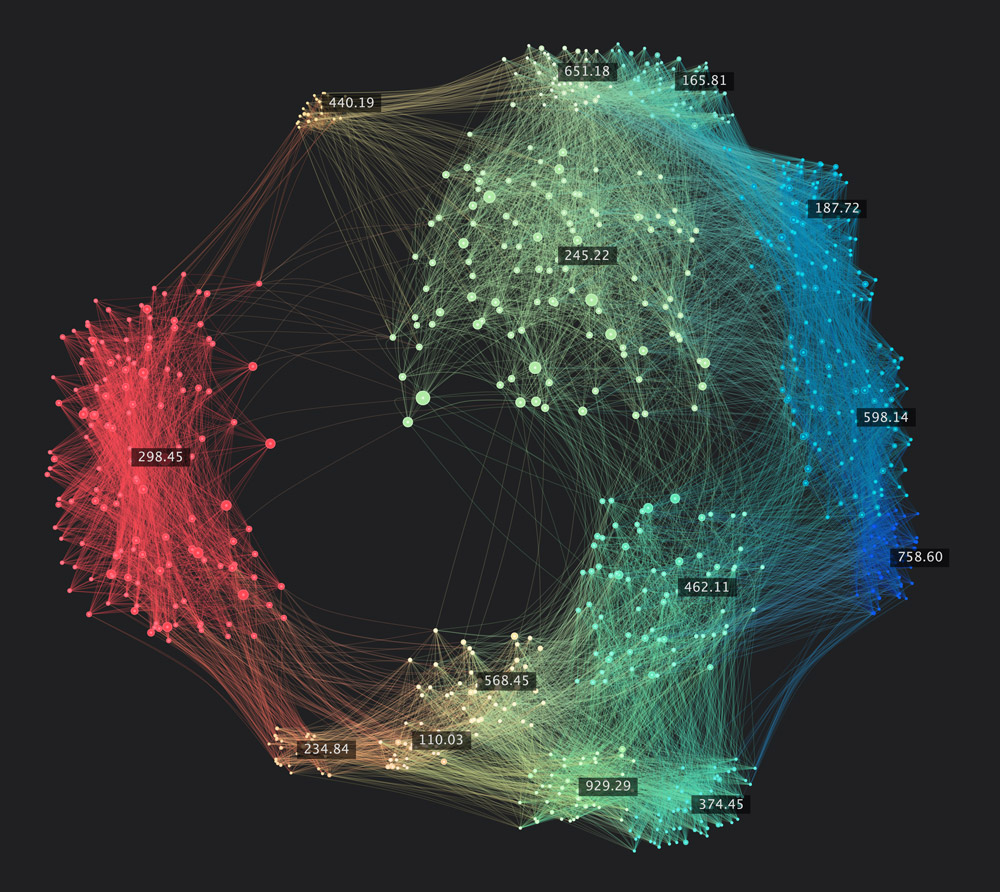 Within applied mathematics, Aida Khajavirad, an assistant professor of industrial and systems engineering, researches the intricacies of mathematical optimization, specifically, Mixed-Integer Nonlinear Programming. MINLP aims to find the best values of variables to minimize a given function, a crucial task in solving real-world problems.
Within applied mathematics, Aida Khajavirad, an assistant professor of industrial and systems engineering, researches the intricacies of mathematical optimization, specifically, Mixed-Integer Nonlinear Programming. MINLP aims to find the best values of variables to minimize a given function, a crucial task in solving real-world problems.
“My branch of research,” says Khajavirad, “deals with optimization problems with a nonconvex objective function and both continuous and integer variables.”
Khajavirad’s work revolves around making the solution of these optimization problems more tractable, particularly when dealing with nonconvex objectives and a mix of continuous and integer variables. “Although many real-word problems can naturally be formulated as MINLPs, solving such optimization problems is often very challenging,” she says.
Khajavirad recently secured a three-year, $389,000 grant from the Air Force Office of Scientific Research. In collaboration with Antonio De Rosa, an associate professor of mathematics at the University of Maryland, she will address complex MINLP problems in data science applications, where locally optimal solutions often overshadow globally optimal ones, leading to computational inefficiencies.
The goal is to develop novel linear programming relaxations and scalable optimization algorithms with theoretical guarantees. This dual-pronged approach aims to overcome the hurdles associated with locally optimal solutions and extensive computation times in solving large-scale MINLP problems in data science.
Khajavirad’s approach puts the emphasis on providing both theoretical guarantees and reduced computation time. "To solve large-scale nonconvex problems in a reasonable time, existing methods either rely on heuristics, which provide good solutions but forego any guarantee on the quality of the solution, or use semi-definite programming relaxations, which do not scale well and are impractical for large-scale optimization.”
The applications of her research span many domains, including computer vision, medical imaging, and finance, to enhance the efficiency and accuracy of data-driven processes.
“A variety of applications in data science can naturally be formulated as large-scale MINLPs, such as data clustering, image matching, and sparse regression,” she says.
At a time when the demand for efficient and accurate data science processes is paramount, Khajavirad’s work is critical.
“Many optimization experts believe that, in the case of nonconvex nonlinear problems, one must compromise either on the guarantee of solution quality or on the speed of solving the problems. My ultimate research goal is to minimize this trade-off by advancing the state-of-the-art in MINLP at theoretical, algorithmic, and software levels.”
 She also says that being at Lehigh has played a pivotal role in facilitating her research. “The ISE department at Lehigh is a world-class center for research in mathematical optimization. It is home to several prominent optimizers in various fields, from quantum computing and applied operations research to data science and machine learning, and hence it provides a unique environment to do research in mathematical optimization.”
She also says that being at Lehigh has played a pivotal role in facilitating her research. “The ISE department at Lehigh is a world-class center for research in mathematical optimization. It is home to several prominent optimizers in various fields, from quantum computing and applied operations research to data science and machine learning, and hence it provides a unique environment to do research in mathematical optimization.”
The past year included a milestone for Khajavirad: She and University of Wisconsin–Madison professor Alberto Del Pia were awarded the 2023 INFORMS Computing Society Prize for their work on “convexifications for mixed-integer polynomial optimization” based on a series of seven papers. This was her second award from the Institute for Operations Research and the Management Sciences, having received an INFORMS Optimization Society Prize for Young Researchers in 2017.
Looking ahead, Khajavirad expects continued growth in research on nonconvex MINLP, and aims to address open questions and tackle applications where current methods fall short.
“My area of research is relatively new, and there are many open questions that I aspire to answer,” she says. “Research in nonconvex MINLP has witnessed significant growth at both theoretical and algorithmic levels over the last few years. While this class of problems has already made a remarkable impact on industrial and systems engineering, there are still numerous important applications that cannot be efficiently addressed using such a class, and these are the ones I want to work on.”
As the landscape of data science continues to evolve, Khajavirad’s work pushes the boundaries of mathematical optimization while paving the way for more efficient and accurate data-driven solutions. Solutions that will ultimately facilitate the decision-making processes across a range of industries.
